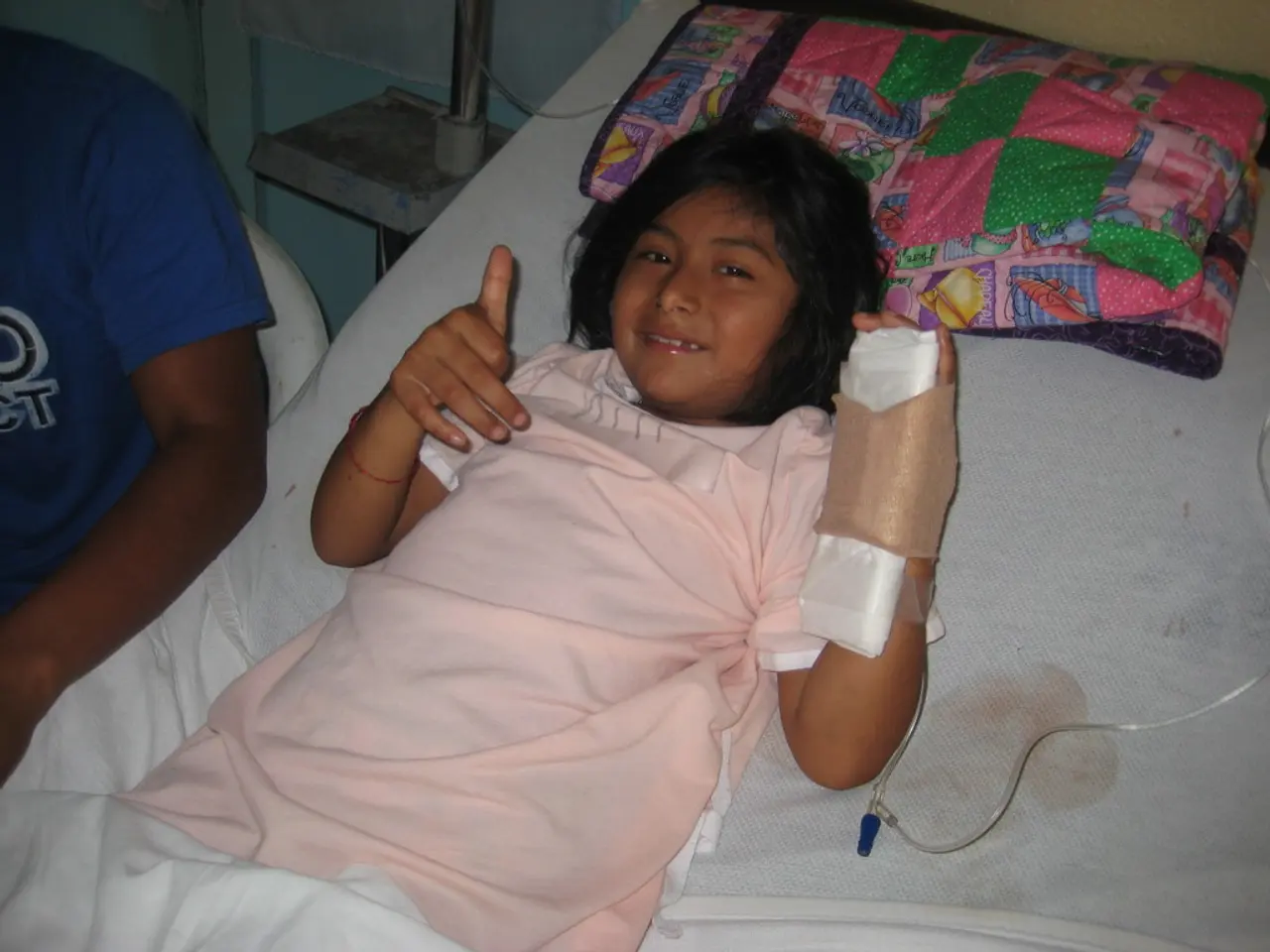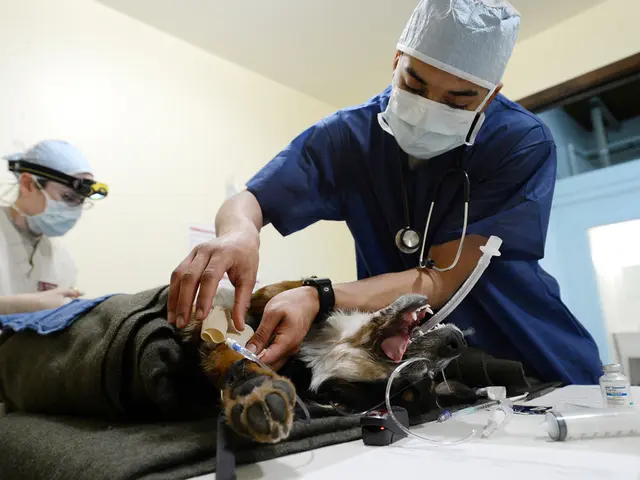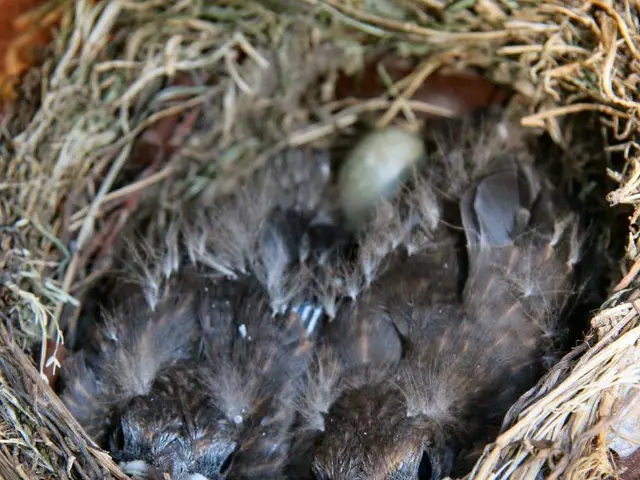Itchy Vagina Without Discharge: Understanding Causes, Symptoms, and Remedies
Itching in the vaginal or vulvar area without discharge can be a worrying experience for many individuals. However, understanding the potential causes and symptoms can help alleviate concerns and provide relief.
Several factors can contribute to itching in the intimate area. Soap, detergent, and pad dermatitis, caused by using scented feminine wash, vaginal pads, or products containing harsh chemicals, can disrupt the natural pH balance and lead to dryness, itchiness, and redness. Clothing that is too tight or made from synthetic fabrics can trap moisture and heat, causing irritation[1]. Sensitivity to shaving or depilating cream can also cause itching a day or two after hair removal[1]. Allergic reactions to products can result in non-infectious vaginitis, leading to itching and irritation[5].
Common symptoms of an itchy vagina or vulva without discharge include persistent itching, visible redness and inflammation, dryness, and general discomfort or pain, especially during sexual activity or urination[1][5].
Home remedies for relief include switching to pH-balanced products, wearing loose, breathable underwear, applying cold compresses, avoiding irritants, and staying hydrated[1]. Consuming probiotics or eating yogurt may help maintain a healthy vaginal flora, though this is more commonly associated with infections that cause discharge[4].
For persistent symptoms, it is advisable to consult a healthcare provider for proper diagnosis and treatment. Preventative measures such as avoiding douching, using scented personal care products, and practicing safe sex can help prevent an itchy vagina or vulva[6].
It is essential to note that some conditions, such as eczema, lichen sclerosus, and pubic lice, can also cause itching in the genital area. Eczema, a condition that causes itchy, flushed skin and inflamed, itchy patches, can appear anywhere on the body, including the pubic area[7]. Lichen sclerosus is a chronic skin condition that affects the genitals and anus, causing the skin to appear thinner than usual and white spots to appear around the vulva[8]. Pubic lice are tiny parasitic insects that attach to pubic hair or coarse hair elsewhere on the body and can cause intense itching in the genital area[9].
In some cases, the herpes simplex virus can cause genital herpes, leading to itching, inflammation, irritation, and blisters[10]. Antiviral medications such as acyclovir and valacyclovir can help manage genital herpes symptoms[11].
If the itchiness is accompanied by fever, body aches, headaches, blisters, flushed skin, pain or tenderness in the genital area, or discomfort during sexual intercourse, it is crucial to seek medical attention[12].
References: [1] Mayo Clinic. (2021). Vaginal itching: Causes and home remedies. https://www.mayoclinic.org/diseases-conditions/vaginal-itching/symptoms-causes/syc-20354858 [2] Healthline. (2021). 9 common causes of itchy vagina and vulva. https://www.healthline.com/health/itchy-vagina-vulva#causes [3] Cleveland Clinic. (2021). Vulvar itching: Causes, symptoms, and treatment. https://my.clevelandclinic.org/health/diseases/15702-vulvar-itching [4] Medical News Today. (2021). Probiotics for yeast infections: Do they help? https://www.medicalnewstoday.com/articles/325537 [5] Johns Hopkins Medicine. (2021). Vulvodynia. https://www.hopkinsmedicine.org/health/conditions-and-diseases/vulvodynia [6] Planned Parenthood. (2021). Itchy vagina or vulva: What could it be? https://www.plannedparenthood.org/learn/stis-hiv-aids/itchy-vagina-or-vulva-what-could-it-be [7] American Academy of Dermatology. (2021). Eczema. https://www.aad.org/public/diseases/eczema/eczema [8] Mayo Clinic. (2021). Lichen sclerosus. https://www.mayoclinic.org/diseases-conditions/lichen-sclerosus/symptoms-causes/syc-20361619 [9] Centers for Disease Control and Prevention. (2021). Pubic lice (crabs). https://www.cdc.gov/parasites/pubic-lice/index.html [10] Mayo Clinic. (2021). Genital herpes. https://www.mayoclinic.org/diseases-conditions/genital-herpes/symptoms-causes/syc-20352533 [11] Mayo Clinic. (2021). Treatment for genital herpes. https://www.mayoclinic.org/diseases-conditions/genital-herpes/diagnosis-treatment/drc-20352537 [12] Planned Parenthood. (2021). Itchy vagina or vulva: When to see a healthcare provider. https://www.plannedparenthood.org/learn/stis-hiv-aids/itchy-vagina-or-vulva-when-to-see-a-healthcare-provider
- A potential cause of itching in the vaginal or vulvar area could be hygiene practices that disrupt the natural pH balance, such as using soap, detergent, or pad products containing harsh chemicals.
- Another factor may be obesity, as excessive weight can lead to various health issues like diabetes type 2, which can cause skin conditions like itchy rashes.
- Eczema, a condition characterized by itchy, flushed skin and inflamed patches, can also appear in the pubic area, causing itching in the genital area.
- Migraine, a common neurological disorder associated with headaches, may not directly affect the skin or the genital area, but depression, a condition often linked with migraine, can lead to skin picking behaviors and associated itchiness.
- HIV, a sexually transmitted infectious disease, can cause various skin manifestations, including itchy rashes on the body.
- According to predictive science and health-and-wellness research, maintaining skin care routines, such as using pH-balanced products and staying hydrated, can help alleviate itching in the vaginal or vulvar area.
- Women with skin conditions like psoriasis or ulcerative colitis might experience itching in the genital area, as these conditions can affect multiple parts of the body.
- A condition called lichen sclerosus can affect the genitals and anus, causing the skin to appear thinner, white spots to appear on the vulva, and severe itching in the genital area.
- Pubic lice, tiny parasitic insects that attach to pubic hair, can cause intense itching in the genital area, as well as discomfort, and skin irritation.
- Some types of thrush, caused by an overgrowth of candida fungi, can result in itchy rashes in the genital area, especially in women.
- Alzheimer's disease, a degenerative disorder affecting brain function, can lead to various skin changes, such as dryness, itchiness, and infections, making skin care and overall health-and-wellness more important for patients.




